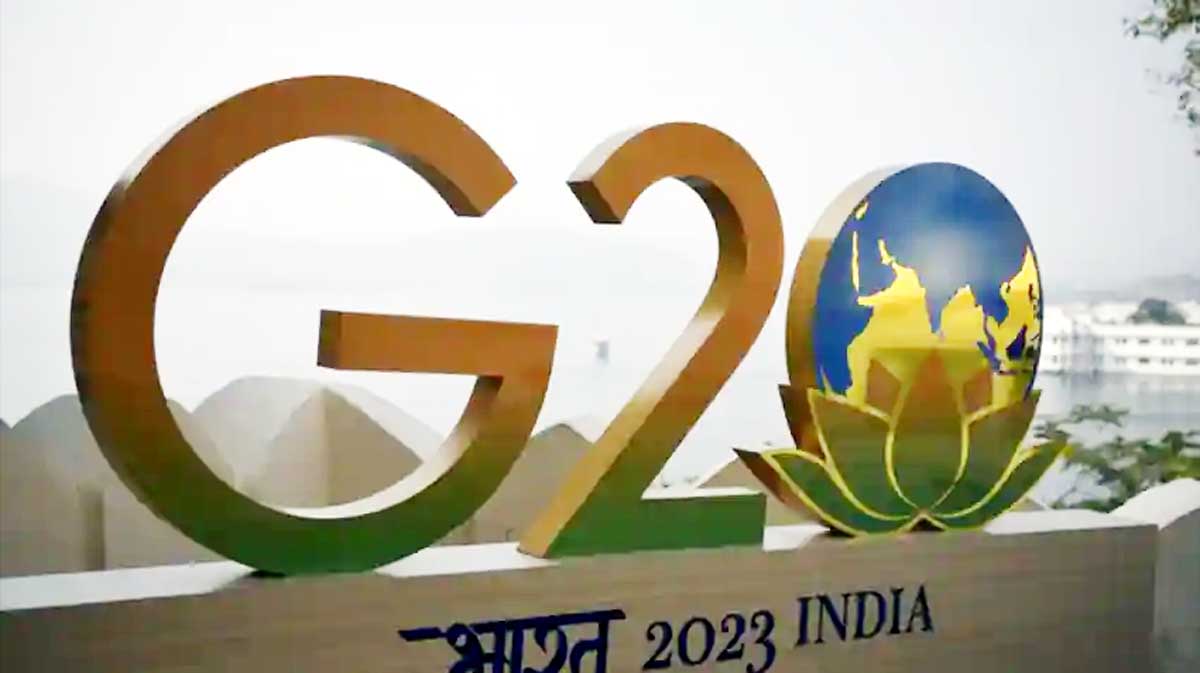WASHINGTON, Dec 13: Leaders of the G7 countries have backed India’s G20 presidency and pledged to jointly address major systemic challenges and immediate crises while reiterating commitments towards an equitable world.
India formally assumed the G20 Presidency on December 1. The next G20 Leaders’ Summit at the level of Heads of State/Government is scheduled to be held on September 9 and 10 in New Delhi.
Prime Minister Narendra Modi said India will work to further promote oneness, inspired by the theme of “One Earth, One Family, One Future” and listed terrorism, climate change and the pandemic as the greatest challenges that can be best fought together.
In a joint statement issued on Monday, the leaders of the G7 countries said they endorse a sustainable future for all.
“Under the German Presidency, we, the G7, together with other international partners, have demonstrated our resolve to jointly address both major systemic challenges and immediate crises of our time. Our commitments and actions pave the way for progress towards an equitable world,” the grouping said in the joint statement.
“As we look to the 2023 G7 Summit in Hiroshima under the Japanese Presidency, and in our support to the Indian G20 Presidency, we stand strong, united and absolutely committed to rebuilding a peaceful, prosperous and sustainable future for all,” the statement added.
The Group of Seven (G7) is an intergovernmental political forum consisting of Canada, France, Germany, Italy, Japan, the UK and the USA. Additionally, the European Union (EU) is a “non-enumerated member”. It is officially organised around shared values of pluralism and representative government.
In an article that appeared in several newspapers and was posted on his website, Prime Minister Modi said India’s G20 priorities will be shaped in consultation with not just its G20 partners, but also its fellow travellers in the global South, whose voice often goes unheard.
India’s G20 agenda will be inclusive, ambitious, action-oriented and decisive, he said.
The G20 or Group of 20 is an intergovernmental forum of the world’s major developed and developing economies.
It comprises Argentina, Australia, Brazil, Canada, China, France, Germany, India, Indonesia, Italy, Japan, the Republic of Korea, Mexico, Russia, Saudi Arabia, South Africa, Turkey, the UK, the US and the European Union (EU).
Together, they account for over 80 per cent of the global Gross Domestic Product, 75 per cent of international trade and two-thirds of the world population.
On Monday, leaders of G7 countries highlighted on the progress of their cooperation under Germany’s Presidency to jointly address global challenges at a time of severe geopolitical crisis and critical moment for the world economy.
The group was joined by Ukraine’s President Volodymyr Zelenskyy.
“This year in the face of Russia’s illegal, unjustifiable and
Unprovoked war of aggression against Ukraine, we stood more united than ever, together with Ukraine and in an unwavering commitment to our shared values, the rules-based multilateral order and international cooperation,” said the joint statement.
Reaffirming their unwavering support for and solidarity with Ukraine in the face of the ongoing Russian war of aggression, the G-7 leaders condemned Russia’s continuous inhumane and brutal attacks targeting critical infrastructure, in particular energy and water facilities, and cities across Ukraine.
“We are determined to help Ukraine repair, restore and defend its critical energy and water infrastructure. We will help Ukraine in meeting its winter preparedness needs, will continue to support Ukraine’s civilian resilience, and will further enhance our efforts on this during the international conference to be held in Paris on December 13,” it said.
“Russia’s war of aggression must end. To date, we have not seen evidence that Russia is committed to sustainable peace efforts. Russia can end this war immediately by ceasing its attacks against Ukraine and completely and unconditionally withdrawing its forces from the territory of Ukraine. We welcome and support President Zelenskyy’s initiative for a just peace,” G-7 leaders said.
Accelerating their contributions to the Partnership for Global Infrastructure and Investment (PGII) to make their global partners a better offer on sustainable, inclusive, climate-resilient, and quality infrastructure investment, G-7 nations welcomed the progress on the Just Energy Transitions Partnerships (JETP) with South Africa and Indonesia as flagship projects for multilateral cooperation, just energy transition and sustainable investment.
They looked forward to swiftly concluding negotiations on a JETP with Vietnam, as well as to making further progress with India and Senegal.
“We will intensify our cooperation within a PGII working group to deliver on our joint ambition to mobilise up to 600 billion dollars by 2027, and on JETPs, we will coordinate through the JETP working group,” it said. (PTI)
Trending Now
E-Paper


